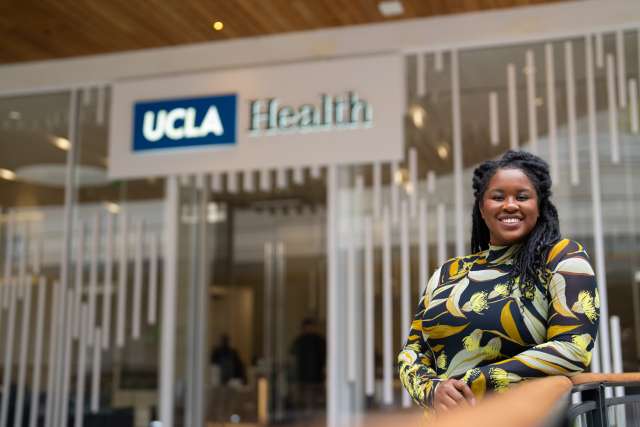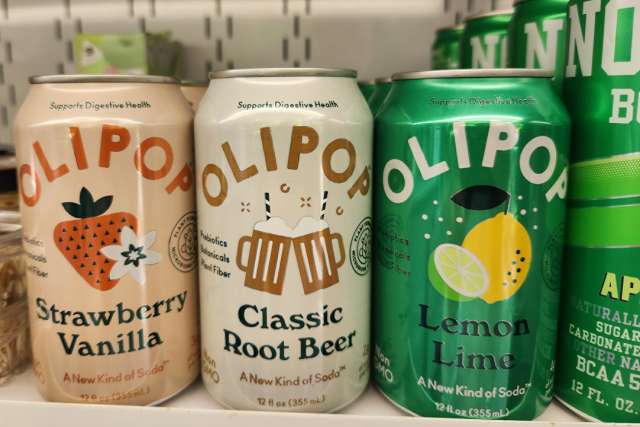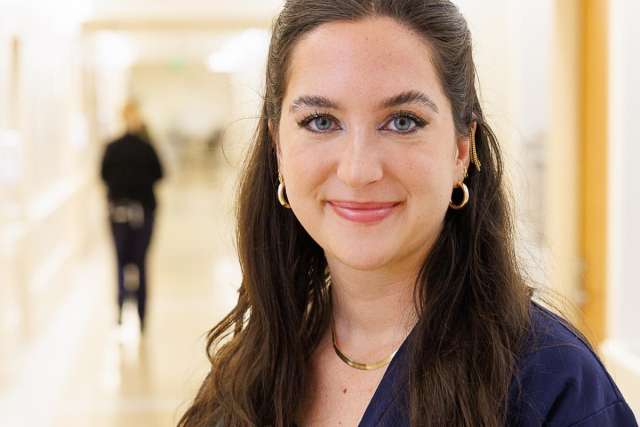A virtual book club for UCLA Health’s LGBTQ+ employees and their allies was the space where Daniel Kasprowicz felt comfortable talking about how he came out as a gay man. He doesn’t disclose his sexual orientation and is typically a private person, said Kasprowicz, Business Relationship Manager Lead at UCLA’s David Geffen School of Medicine.
“But, this forum allowed me to open up and be vulnerable, in a way I hadn’t been in a long time. It was therapeutic to share the story and hopefully, have it benefit someone.”
The book club was one of the programs started by the UCLA Health Pride Network, a systemwide employee and training resource umbrella group whose goal is to empower the system’s LGBTQ+ employees and trainees. The initiative was started in 2020 by Emery Chang, MD, a primary care physician for LGBTQ+ and People living with HIV at UCLA Health’s Santa Monica Internal Medicine and Pediatrics clinic. Chris Mann, the Gender Health Program Manager also co-founded the UCLA Health Pride Network.
Creating a safe space
Dr. Chang envisioned a social group for UCLA Health employees that would meet regularly, share ideas and foster connection, Kasprowicz said.
“This is an important resource for many UCLA Health employees and faculty because it might be the only avenue where they are comfortable being who they are,” he said. “They may not be out to family members, friends or even co-workers. Everyone has a different journey of where they are in the process.”
The UCLA Health Pride Network comprises 450 LGBTQ+ associates and allies. Since its inception, it has created a coming out video in celebration of National Coming Out day on Oct. 11, 2020, featuring half a dozen interviews of members. The network’s core group has also implemented a policy for employees to use preferred or “lived” names on their ID badges.
In addition, they plan community outreach events around annual PRIDE celebrations organized for the cities of Los Angeles and West Hollywood to educate attendees about UCLA Health services and programs.
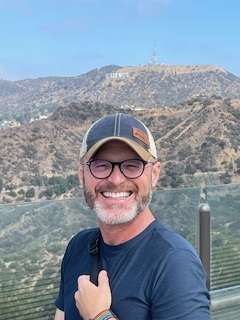
Troy Ratcliff, regional float manager for the Santa Monica, Malibu and Pacific Palisades clinics, said the UCLA Health Pride Network is not only important for staff and faculty, but also for patients who come to the system’s clinics.
“It’s important for an organization our size that is also dealing with a gender health population that can come to our clinics and feel safe knowing that there are people like them involved in their care,” he said.
Jacquelyn Rollins, project coordinator for the Simms Mann UCLA Center for Integrative Oncology, said the UCLA Health Pride Network provides "a sense of connectedness" to LGBTQ+ staff and trainees in the UCLA Health system by organizing in-person and virtual meet ups.
“Last year, we had a discussion about the monkey pox vaccine because we were a population that was at risk,” she said. “It’s nice to be part of something that is so topical as employees and as queer folks.”
A supportive community
Rollins, Ratcliff and Kasprowicz, who form part of the core group that moves this initiative forward, shared that they all faced their own personal challenges in coming out. Rollins tears up as she speaks about how she came out as queer at age 35.
“To have a supportive community outside and at work is so crucial,” she said. “It’s not about who our romantic partners are. It’s a culture and a community in itself. It has provided for me a space to explore different aspects of what it means to be queer.”
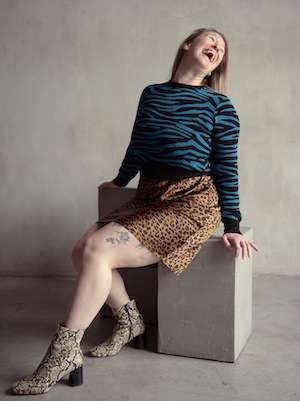
Rollins also sees this space extend to patient care. She describes meeting Dr. Justine Lee, a UCLA Health plastic surgeon who performs facial gender affirming surgery, as a “fangirl moment.”
“It doesn’t affect me directly as a cis woman, but the power is in knowing the care she provides to others and the impact she has on the whole community. It means a lot given the attacks on transgender care in other states.”
Ratcliff was 25 when he came out. Having grown up in a Christian, midwestern, farming community, he said he “didn’t even know what being gay was” until he went to college.
“So, for me, being able to work in an open and supportive organization is huge,” he said. “I love our PRIDE events. I would volunteer every single day to be there, be a part of the community and get UCLA out there as a supportive company. Our patients see us involved and see us out there.
“I want to be a part of it, even if it’s a small part, even it means I help change one person’s perspective.”
Kasprowicz came out when he was 28. He had the guidance of a co-worker at a grocery store who counseled him on how to talk to his family. That man taught him that there is no right time to come out. If your family loves you, he said, they will love you and accept you for who you are.
“The point is, I did not have someone to confide in when I was growing up. Meeting him was a real turning point in my life,” Kasprowicz said.
A ‘therapeutic escape’
The UCLA Health Pride Network also gives employees equitable access to PRIDE events, which can sometimes be cost-prohibitive, Ratcliff said.
“Our organization employs everyone from people at the front desk to people who are drawing blood to doctors and presidents,” he said. “Everyone’s finances are a little different. If someone does a four-hour shift as a volunteer, that gives them access to the whole festival. I think that’s a really beautiful thing that we are able to provide.”

For Kasprowicz, this group is “a therapeutic escape to get away from the daily stuff.”
“I’m an IT guy and don’t deal directly with patient care like other employees,” he said. “I don’t get exposed to gender health operations. But, this group helps me pay it forward and do something for someone who may be going through a struggle. Maybe I could help make their lives a little more comfortable.”
Rollins would like to see this initiative blossom and go even further by informing policy at the institutional and state level. Kasprowicz believes their job is not done unless the LGBTQ+ community has equitable health care.
Ratcliff said he is excited to see “where we can go within our own community.”
“It’s about letting our patients know we’ve got their back, we’re there to support them, and they are in a safe place,” he said.

